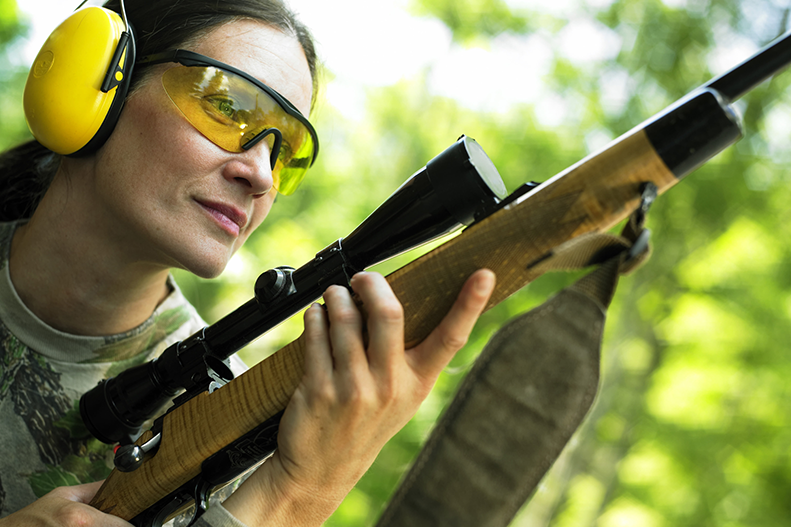Safe, responsible hunting with firearms requires preparation and knowledge. Hunters must know how to handle guns properly, what licenses they need, and how to dress properly for both safety and mobility, and how to remain visible to other hunters in the outdoors. To truly stay on target this season, don’t overlook the importance of preventing hearing damage.
Hearing protection — which includes foam plugs, custom plugs, and earmuffs — is essential when shooting firearms. The loud bang of a gun firing can cause noise-induced hearing loss if proper protection is not worn.
Never Miss a Beat!
Subscribe to Our HealthBeat Newsletter!
Thank you for subscribing!
You can now select the specific newsletters you'd like to receive.
You are already subscribed.
Subscribe to more newsletters in our email preference center.
Sorry, an error occurred. Please try again later.
Get Healthy Tips Sent to Your Phone!
How Loud Is a Gun?
To explain the damage a gunshot can do, consider how it measures up against other common noises, measured in units called decibels (dB). Normal speech is about 60 dB, lawnmowers are 90, and car horns are 110. Gunshots, however, can top out at 140 or 150 decibels.
When a sound is that loud, a single exposure can cause hearing loss. Repeated gunshots, such as at a firing range or when hunting smaller game, can result in even more problems. As a rule, the louder the sound, the shorter the amount of time it takes for the noise to cause hearing damage. Although not everyone’s ears react the same way to noise exposure, hearing loss can be slow and painless. It’s important to protect your ears even if you don’t notice a problem.
Selecting the Right Hearing Protection
When shopping for earplugs and earmuffs, check the package for information on sound reduction listed in decibels — the higher the number, the more noise they block.
In addition, many sports stores carry ear protection options that not only prevent hearing damage but also amplify sound between shots. Some reusable earplugs have acoustic filters that allow safe, low-decibel sounds through while blocking loud noises. This allows hunters to remain aware of their surroundings, including other hunters, vehicles, and game.
Some earmuffs specifically designed for shooting are electronic and have amplifiers and two-way radios built in. When a microphone detects a high-decibel sound, it can shut down the amplifier temporarily to prevent hearing damage.
How Much Protection is Enough?
It may seem that plugs or muffs with 20 or 30 dB of sound protection won’t be much help. After all, if noise is dangerous above 85 dB and gunshots are 140-150 dB, some might ask if it’s even worth it.
Luckily, a little help goes a long way. Since a gun firing is a short burst of noise, muffling it has a big impact on whether you end up with hearing loss.
One solution many hunters use is to wear both earplugs and earmuffs. Using two layers of protection does help, but you can’t simply add up the decibel ratings to measure the noise being blocked.
Focus on choosing ear protection that fits you comfortably and you wear consistently. Hearing damage can occur at any age, so make sure everyone in the hunting party within earshot has their own plugs or muffs. In fact, you can even find earmuffs for dogs.
Approximately 15 percent of Americans between the ages of 20 and 69 (26 million people) have hearing loss that might have been caused by noise exposure, according to the National Institute on Deafness and Other Communication Disorders. If you wear suitable ear protection, you may save your hearing — and still bring home a trophy.
Before hunting season begins, consider getting your hearing checked to be sure you’re in peak condition.
Visit the Metro ENT Associates website or call 724-772-2711 or 1-866-929-6368 to schedule an appointment.
About Ear Nose and Throat
The experts in the UPMC Department of Otolaryngology treat a variety of ear, nose, and throat (ENT) conditions in both children and adults. Our team includes board-certified physicians and highly skilled speech-language pathologists and audiologists. We provide both surgical and nonsurgical treatment options. Our research and clinical trials help to advance care for our patients. Find an ENT expert near you.
